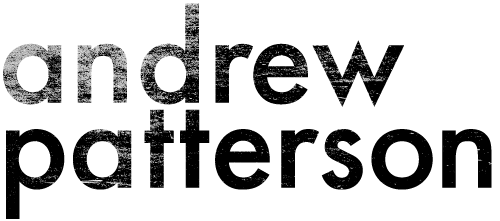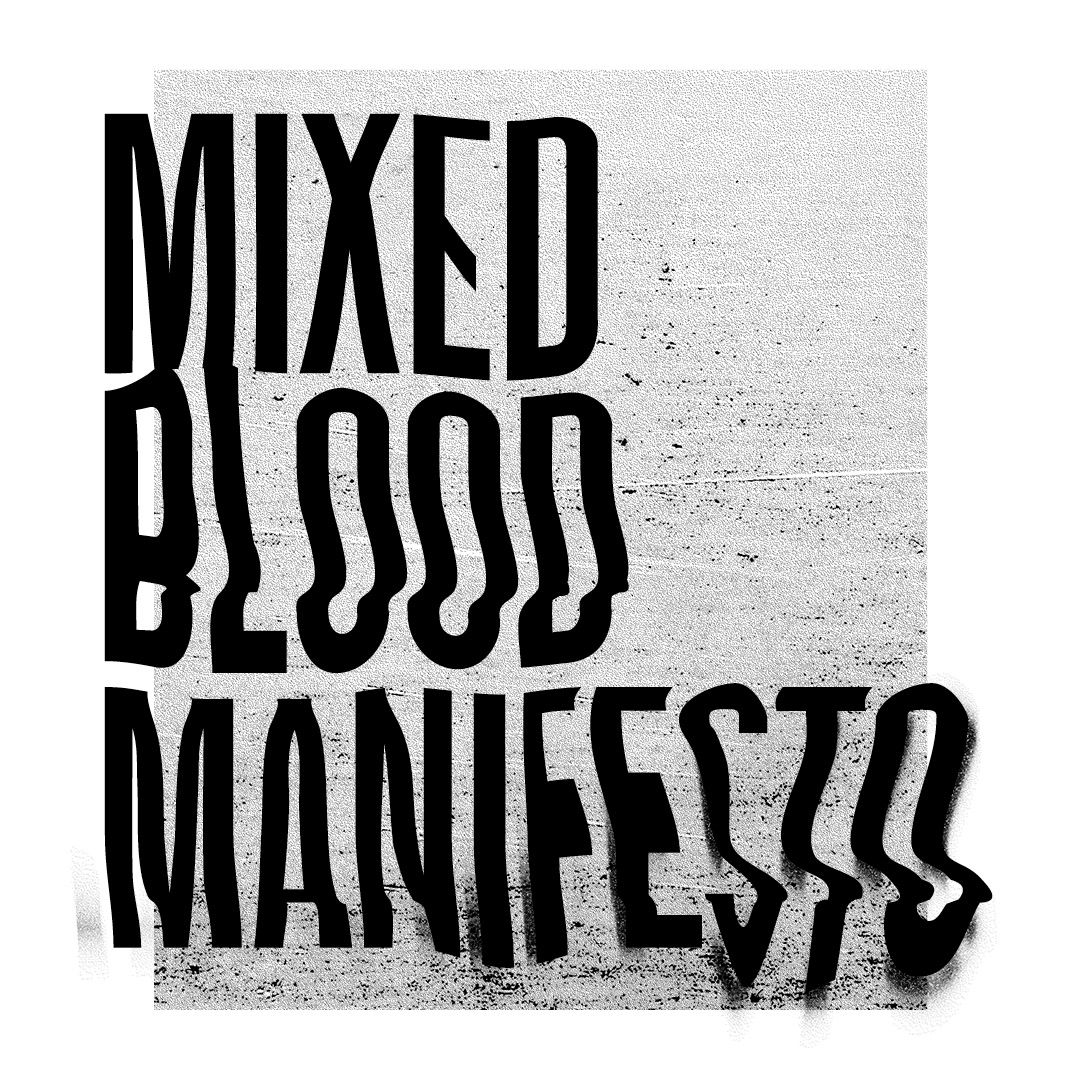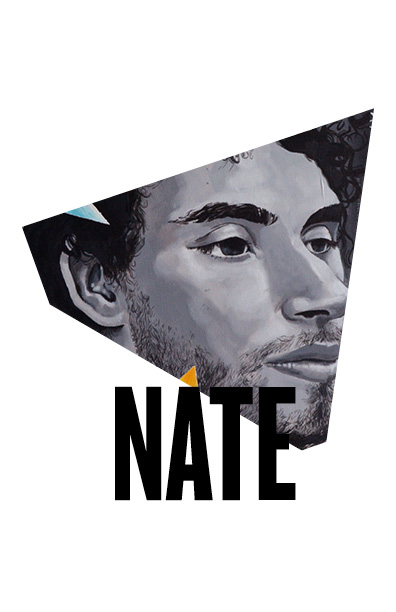A chat with actor Celestine Caravaggio from my upcoming zine Mixed Blood Manifesto.
Andrew: UGH. Had a migraine yesterday, it’s kind of been one thing after another this week. If I may, let me open this discussion on identity – I’m putting the finishing touches on your portrait. How would you say you ‘identify’?
Celestine: When you say identify do you mean culture? When people ask me, I say Canadian. If they really want to know my ancestry, I describe myself as Chinese Portuguese Filipina and Spanish. I will sometimes refer to myself as Asian Latino. Female. She/Her.
A: Yeah, I’ve kind of been asking it in an intentionally vague way, because i don’t want to lead people on how they answer. That’s perfect though – that’s been a pretty common answer among the other folks I’ve been painting.
Canadian generally is the initial response, and then a more specific sort of ethnic history “when pressed” – which we’ve all experienced. hahaha
Celestine: haha…really shows we’re just all the same but not.
A: 100%. It’s interesting, I mean most people don’t think of themselves as ‘this thing’ until someone points it out or attempts to define it? If that makes sense? hahaha like I think that for example, a point many minorities have been trying to make to white majorities is that to us, inside, we don’t feel like white is the default and we are ‘other’. We all just feel like people. The distinctions are a result of generations of history.
Did you grow up exposed to a lot of, I don’t know, let’s say ‘tradition’ associated with the ethnic background of your parents and grandparents? Or was yours a pretty standard general Canadian upbringing?
Celestine: I did face a lot of mixed feeling based on the way I look. I grew up in Guelph, a predominantly white town of blue collar, factory workers. I was called everything under the sun. “Chink”, “Paki”…mostly because they didn’t know any better. No one was teaching them. Their parents likely didn’t take the time to. My mother is an immigrant who grew up by the nuns in the Philippines and was educated in the US. She was smart and, victoriously, was able to find work in Canada. She spoke English well along with other languages (Spanish, Italian). People don’t recognize the hard work that it takes to leave a developing country, get an education and “make it”. I think it’s important to note that I was lucky to be different in a time where pop culture was changing – rap music, pop, hip hop dominated the industry and music videos helped to grow people’s understanding of what was “out there”. I worked at a record label and in the music video department and saw how this form heavily impacted people’s understanding and exposure to “us”.
A: Oh yeah! That’s right up my alley. I’ll go on extensively with little to no encouragement about how music and the arts was an area of comfort I was drawn to. For the most part, I was interested in sub-cultures that ‘discriminated’ or invited participation in spite of things like racial background – things that sort of espoused a kind of grey unity. But it was also unavoidable for most people around me to make those connections based on race; Hip Hop for example, maybe seems like an “obvious” thing for me to be into, but I think most people would be surprised to find out why I relate to it. My love of punk music, on the other hand, often came as more of a surprise because it doesn’t bare the same easy to catalog skin-tone connection. The same could be said for maybe any visible minority being pinned to certain cultural movements without a real understanding of those movements…Did you find working in that industry afforded you opportunities to challenge stigmas, or was it more of a disillusioning experience to learn how disconnected some of those perceptions of race were?
Celestine: It’s funny…working in music and growing up in Guelph introduced me to a lot of Canadian rock bands. As a singer songwriter myself, I am instantly drawn to melodic, country, pop country and blue grass music with a pop spin. Most people wouldn’t exactly know that about me. But to answer your question, I was the first person of colour who happened to be female at the label when I started. It was opportunistic because I wanted to gain a career where I could work in PR and closely with artists because being an artist myself it was an easy connection. I understand them. But the label’s point of view was that I was young and could “roll” with the urban crowd. No one ever commented on my race but my boss always got feedback that bands preferred to work with me. Combine that with a strong work ethic, familiarity with the music and a strict “don’t date/flirt with band guys” approach and I was able to gain success in that career. So, perhaps being a woman of colour was a small part of that success, but I KNOW I worked HARDER thank most to get there.
A: True! That’s something I always love to hear; bucking genre stereotypes. I didn’t know you were a fan of the country end of the spectrum!! I was reading a study recently about “social identity complexity and outgroup tolerance” – I won’t bore you with the details, but the TLDR is that generally people who have ‘high complexity’ (identify with various ingroups distinctly) have a higher tolerance for outgroups. So, basically if you are able to comfortably see the distinctions between various groups you belong to, it makes you more open to groups you don’t belong to. I only bring it up because I feel like there’s a connection here with the likelihood for people of mixed-race backgrounds to be more open to exploring or participating in a wider variety of groups – including music and the like. Anyway. Interesting little aside.
Okay, last thing I want to ask you about for now – as one of only a couple parents in this first series, I’m curious how you feel about these topics as they relate to your kids! For instance, I’ve had many discussions with folks who strongly identify with a particular ethnic identity that feel it is an absolute priority that they ‘pass on tradition’ or emphasize their heritage to their children. Given that we belong to a…we’ll say more ‘vague’ identity in this sense, is this something you feel is a crucial or important element to raising your kids?
Celestine: In terms of raising kids, I do believe the conversations about heritage are a duty to introduce and explain. Though, in my case, my son was told about his heritage and he continued to be curious on his own. Traveling and being part of various social communities has allowed him to find commonalities and it allows him to connect, for people to get to know him and for him to feel both unique and part of his broader community. I think my responsibility as a parent is to expose him to his heritage and history but it’s his responsibility to quench his own curiosity. As a result, this learning will deepen his knowledge and hopefully his relationships with others too.




